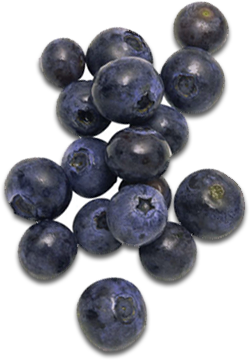no items to display
Turn Down the Heat: How to Tamp Down Inflammation Through a Healthy Diet
If you’re like me, you ask yourself a million questions when considering the healthfulness of any given food. For example: How processed is it? How much carbohydrate, protein, and fiber does it have? What’s its glycemic index? We health-conscious people are curious and deeply involved in our food choices.
There’s another question that’s on my mind these days when pondering what to eat. How does this food affect inflammation? You see, some foods contribute to inflammation, while others combat it. In this blog post, I’ll explain how chronic inflammation affects your body and how you can reduce it through a healthy diet.
Acute vs Chronic Inflammation
There are two kind of inflammation, acute and chronic. Acute, or short-term, inflammation is the body’s response to a threat, such as an infected cut or a bug bite. The injured area may be painful and warm to the touch, red, swollen, or stiff. These symptoms are caused by the body marshalling its immune forces and sending them to the site of the injury. Acute inflammation can be uncomfortable, but it helps the body heal and subsides within a few days.
It’s when inflammation becomes chronic that it’s a problem. Chronic inflammation is often invisible because it’s internal. It’s a contributing factor to many health issues that affect the joints, heart, brain, blood sugar, and even mood. If your doctor has ever done a CRP test on your blood, he or she was looking for a marker of chronic inflammation known as C-reactive protein. Inflammation is so relevant to your health, the CRP test is now pretty standard in routine blood tests.
There are many factors that affect chronic inflammation, but the good news is you have some control here. Based on your food choices, your diet can contribute to inflammation or help keep it in check.
Inflammatory Foods
A lot of inflammatory foods are ones that already don’t have the best health profile: Think fried foods (like French fries); white bread, pastries, or other foods with highly refined carbs; soda and other sugary drinks; red and processed meats; and fats like margarine and lard. Diets high in inflammatory foods have been shown to have negative health effects. Eat these foods sparingly to help prevent chronic inflammation.[1]
Anti-inflammatory Foods
On the flip side, foods that help modulate inflammation are the ones you already know are healthy, including olive oil, nuts, fatty fish (like salmon or mackerel), and most fruits and vegetables. Leafy greens like kale and spinach, tomatoes, and fruits like oranges, cherries, and blueberries have all been shown to be effective in promoting a healthy inflammation response.* Why? Thank their stores of polyphenols and other antioxidants. These anti-inflammatory superheroes sop up the free radicals that can contribute to inflammation. Your morning cup of Joe contains polyphenols too, so it may also help support a healthy inflammation response.* Just don’t dump too much sugar in it![2] (I put liquid stevia in mine.)
The Mediterranean diet, with its emphasis on olive oil, nuts, fish, beans, and produce is a good dietary pattern to follow if you’re concerned about inflammation. (And pretty much everyone should be.)
Juice Plus+ as Part of a Healthy Diet
There’s no substitute for eating more fruits and veggies, but with the nutrition of 30 fruits, vegetables, and grains, Juice Plus+ can help fill the gaps in your diet. Juice Plus+ Fruit, Vegetable, and Berry Blends all support a healthy inflammation response.* A lot of brands may say that about their products, but Juice Plus+ actually has the clinical research to prove it. In fact, Juice Plus+ clinical research — conducted on folks ranging from highly trained athletes to overweight adults — has shown that Juice Plus+ decreases levels of several biomarkers of inflammation.*[3],[4],[5],[6]
Children’s health expert Dr. Sears says that supporting a healthy inflammation response is important for kids as well as adults. After all, it’s never too early to get off to a healthy start. “One of the main benefits of Juice Plus+ that appeals to me as a doctor is it’s backed up by solid research,” he says. “Juice Plus+ does good and healthful things for the body.”*[7]
Are you concerned about chronic inflammation? What are your strategies for preventing it?
References
[1] Foods that fight inflammation. Harvard Women’s Health Watch. Harvard Health Publishing. 2018 Nov 7. https://www.health.harvard.edu/staying-healthy/foods-that-fight-inflammation
[2] Foods that fight inflammation. Harvard Women’s Health Watch. Harvard Health Publishing. 2018 Nov 7. https://www.health.harvard.edu/staying-healthy/foods-that-fight-inflammation
[3] Lamprecht M, et al. Several indicators of oxidative stress, immunity, and illness improved in trained men consuming an encapsulated juice powder concentrate for 28 weeks. J Nutr. 2007 Dec;137(12):2737-41.
[4] Jin Y, et al. Systematic inflammatory load in humans is suppressed by consumption of two formulations of dried, encapsulated juice concentrate. Mol Nutr Food Res. 2010 Oct;54(10):1506-14.
[5] Lamprecht M, et al. Supplementation with a juice powder concentrate and exercise decrease oxidation and inflammation, and improve the microcirculation in obese women: randomised controlled trial data. Br. J Nutr. 2013 Nov 14;110(9):1685-95.
[6] Williams EJ, et al. Effects of an encapsulated fruit and vegetable juice concentrate on obesity-induced systematic inflammation: a randomised controlled trial. Nutrients. 2017 Feb 9;9(2). pii: E116. doi: 10.3390/nu9020116.
[7] Keeping kids healthy: Improving children’s health through healthy habits. Juice Plus+ 2019 https://www.juiceplus.com/us/en/clinical-research/expert-testimonials/keeping-kids-healthy--improving-children-s-health-through-healthy-habits






